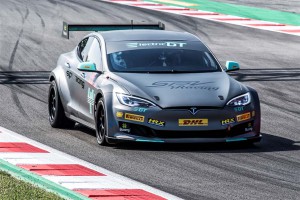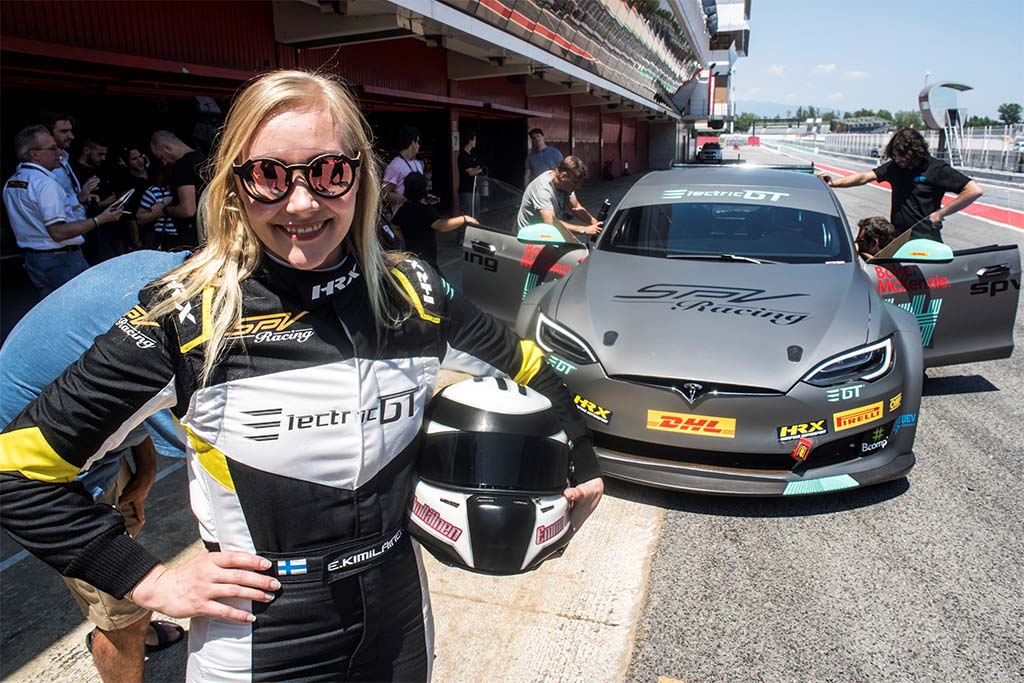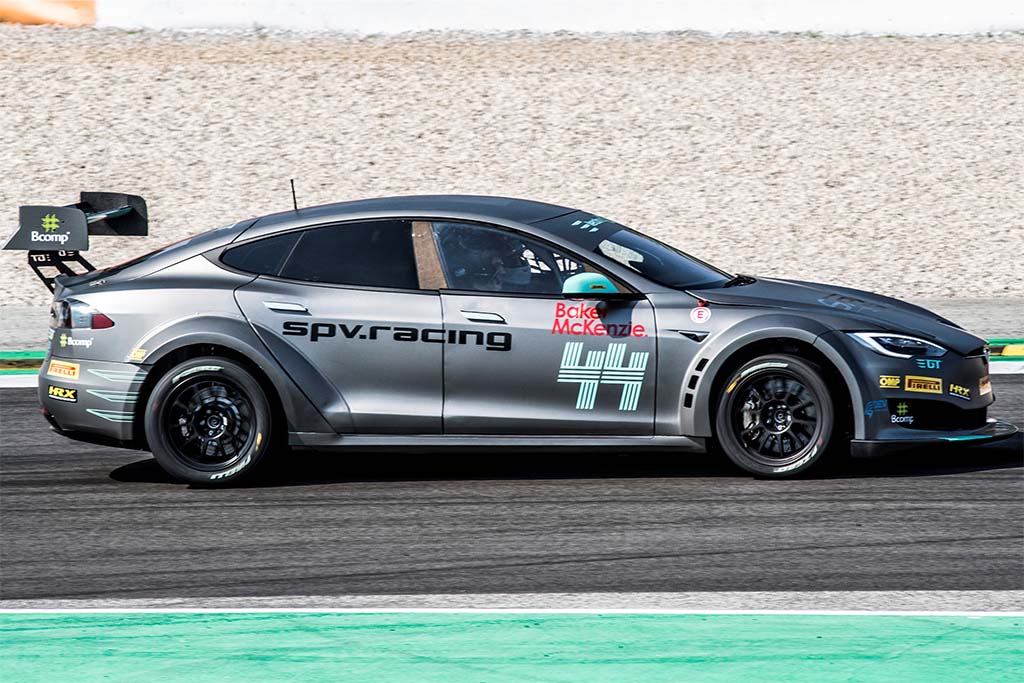With the introduction of Ludicrous Mode for the Model S a few years back, Tesla threw down the gauntlet, declaring it could match the performance of just about any traditional gas-powered vehicle.
Now, we’ll get to see what the battery-car really is capable of as it anchors the debut of the Electric Car Production Series, a new, FIA-sanctioned race series that will get underway with a race in Jerez, Spain this coming November. There will be a total of 10 races across Europe before the season wraps up in October 2019.
The Tesla sedans have received a number of modifications, notably to address cooling issues that limit how long the street version of the Model S can be pushed to the limits. Customized by Electric GT Holdings and SPV Racing, the sedans now turn out 778 horsepower and 773 pound-feet of torque, enough to hit 100 kmh, or 62 mph, in 2.1 seconds, with a top speed of 155 mph.
(Tesla sues former employee over alleged sabotage. Click Here for the latest.)
The organizers “are really excited to receive our first race car and proud to be involved in the evolution of Motorsport,” said Lars Lindberg, the manager for the SPV Racing Team. “It’s a great platform for developing and testing innovative new sustainable technology.”
The ECPS is by no means the first, or the only, electric car racing program. They’re slowly beginning to gain momentum, with Formula E clearly the best known. That series has been gaining a growing number of automotive sponsors, including Renault and Jaguar, and it is serving, as much as anything, as a real-world showcase of quickly evolving battery technology. In its first few seasons, drivers have had to stop, mid-race, and swap cars because of limited battery range. Starting next year they’ll be able to run the entire race in the same vehicle.
While Formula E relies on specially designed vehicles, basically electrified F1 race cars, the EPCS series will rely exclusively on modified Tesla Model S sedans.
“We said ‘we need to get the balls-out fastest car there is’ and that was that,” Mark Gemmel, the CEO of the race series’ organizer, Electric GT Holdings, told website Motorsport.
When the program originally was announced in March 2016, the plan was to use Tesla’s Model S P85 sedan, but organizers have since decided to turn to the more powerful P100DL – which also offers the advantage of a more powerful battery.
(Electric carmaker Byton reveals its new K-Byte. Click Here to check it out.)
Though Gemmell said “the differences are relatively minor,” the race version of the Model S that will run in the series has gone through modification to its brakes and suspension, among other things. There’s a large rear wing for improved downforce, and track-specific safety systems, as well as lightweight body panels using what are described as “natural composites” by QEV Technologies, the company that is handling all modifications.
While organizers didn’t offer specific details, they also were expected to upgrade the cooling system to ensure that the Model S can actually handle the heat generated during extended high-speed driving. Currently, the production version of the sedan usually winds up going into a limp-home mode after, at most, a couple of laps.
Each car costs a little less than $400,000, according to organizers, significantly less than what manufacturers like Lamborghini and McLaren get for those hoping to race in one of their factory series.
So far, four teams appear to be locked in place, with at least three others looking to join, according to Gemmell.
Along with the main event, organizers plan to stage two other races: the Electric GT eKarting Series and the Electric GT eSports Series.
“For me it’s fantastic to be part of the development of motorsport, making it not only sustainable but also very relevant for testing and demonstrating technologies and as a driver I have great expectations of the performance of the EPCS race car,” said Emma Kimiläinen, one of the inaugural Tesla drivers.
(VW plans to show prowess with electric race up Pike‘s Peak. Click Here for more.)



